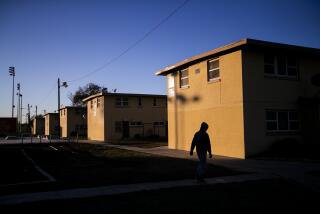Guidance on Chromium 6 Now
Last week’s joint legislative hearing on the presence of chromium 6 in Los Angeles drinking water yielded some obvious questions but only murky answers. No one, it seems, knows what level of chromium 6 is safe. A known carcinogen when inhaled as particles or fumes, its health risk when consumed in water is still debated. Despite the uncertainties, local water agency representatives and university cancer researchers have suggested two obvious steps that the state could take to find answers and protect public safety in the interim.
First, issue an immediate advisory guideline on acceptable chromium 6 levels in drinking water. The standards now in place measure total chromium, not chromium 6. Chromium, a metal that is not considered dangerous, is used in aircraft manufacturing, electroplating and other industries. Chemical reactions, however, can transform chromium into chromium 6.
Tap water in Los Angeles County buildings meets the current federal and state standards for total chromium. But based on preliminary tests earlier this year, it falls short of the state’s more stringent, but advisory, public health goal. Scientists disagree on whether the current standard is strong enough to protect public health.
The California Department of Health Services said it needs five years to research and implement a new standard. But the department already has the authority to issue what’s called a drinking water “action level” specifically for chromium 6 without going through the time-consuming steps required for a new standard.
The action level would require water agencies to notify local city councils and customers if chromium 6 concentrations exceeded the recommended level. This would provide urgently needed guidance until a new standard is established and would help water agencies decide when to shut down contaminated wells. And it would be far better than leaving the agencies--and the public--in the dark for five more years.
The Los Angeles Regional Water Quality Board, the agency that governs drinking water safety in Los Angeles and Ventura counties, has targeted 200 industrial sites in the San Fernando Valley; chromium cleanup is already underway at sites in Compton and Pomona. But the board has just two staffers to do the work. The next step should be to hire more people to track down the sources of the chromium pollution.
More to Read
Sign up for Essential California
The most important California stories and recommendations in your inbox every morning.
You may occasionally receive promotional content from the Los Angeles Times.










